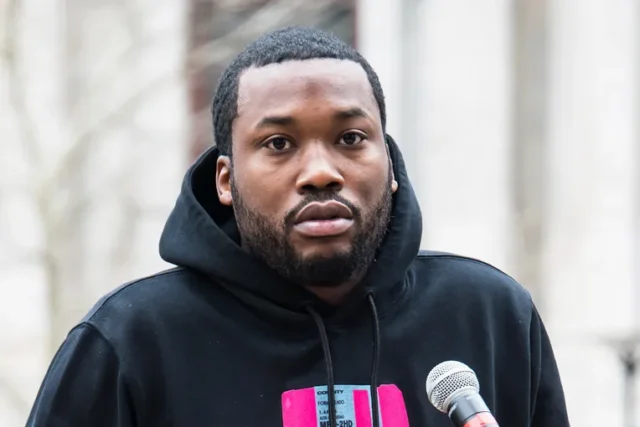Social media has become an undeniable force in our lives, particularly for the Black community. While it offers a platform for connection, expression, and empowerment, rapper Meek Mill has sparked a conversation about its potential downsides.
Meek Mill’s Struggles and Social Media Scrutiny
2023 has been a challenging year for Meek Mill. His recent EP, “HEATHENISM,” despite featuring prominent names like Future and Fivio Foreign, underperformed commercially. This has fueled criticism, particularly from 50 Cent. Additionally, his association with Diddy, embroiled in a lawsuit with graphic video leaks, has drawn unwanted attention.
- Related Post: Draya Michele Welcomes Baby Girl with Jalen Green, Marking a New Chapter on Mother’s Day
The Black Community and Social Media
In response to these events, Meek Mill took to social media, ironically, to express his concerns. He argues that social media has negatively impacted the Black community, stating:
“The black community needs therapy over social media point blank … the points we be trying to make don’t lead to anything … just a bunch of people pointing fingers all day …I talk because I see a generation run by computers … computers don’t suffer but people do!”
This statement has ignited a debate. Let’s delve deeper into the potential mental health effects of social media on the Black community.
Potential Negative Impacts of Social Media
- Echo Chambers and Confirmation Bias: Social media algorithms can create echo chambers, where users are primarily exposed to information that confirms their existing beliefs. This can lead to increased polarization and negativity within the Black community.
- Cyberbullying and Online Harassment: The Black community is disproportionately targeted for cyberbullying and online harassment. This can lead to feelings of isolation, anxiety, and depression.
- Comparison Culture: Social media often presents unrealistic portrayals of success and happiness. This can lead to feelings of inadequacy and low self-esteem, especially for young Black users.
Is Therapy the Answer?
Meek Mill’s suggestion of therapy for the Black community is a complex one. Therapy can undoubtedly be a valuable tool for managing mental health challenges. However, access to quality mental health services can be a barrier for many.
Moving Forward: A Balanced Approach
The conversation around social media and mental health requires a nuanced approach. Here are some key points to consider:
- Promoting Media Literacy: Equipping users with media literacy skills can help them critically evaluate information online and avoid falling prey to negativity.
- Creating Safe Spaces: Fostering online and offline spaces for positive and constructive dialogue within the Black community can be crucial.
- Social Media Detox: Encouraging breaks from social media can allow for self-reflection and a healthier relationship with online platforms.
Conclusion
Meek Mill’s comments highlight the complex relationship between social media and mental health in the Black community. While therapy can be beneficial, addressing the root causes of negativity online and promoting responsible social media use are also essential steps. By fostering open discussions and implementing practical solutions, we can navigate the digital age and protect mental well-being within the Black community.





